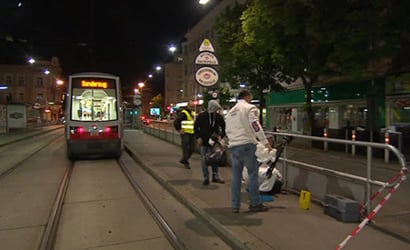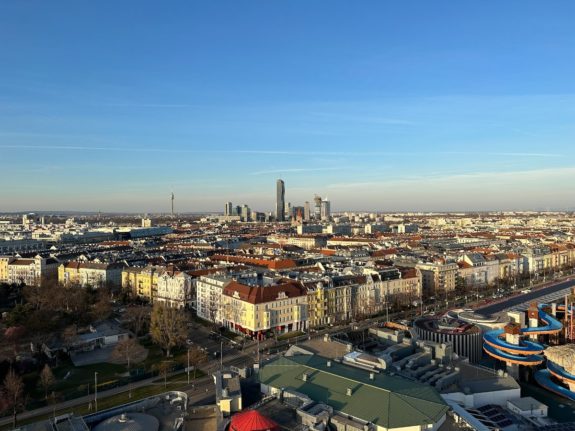They said they know his name and believe he fled the country with his brother.
Surveillance camera footage from the tram as well as information from members of the public meant police were able to establish the suspect’s identity within days, police spokesman Patrick Maierhofer said.
He added that police believe the brothers left Austria immediately after the shooting and are making their way back to Kosovo, where they live.
They are believed to have travelled to Vienna to carry out what is thought to be a revenge killing motivated by a long-term family feud between two Kosovo Albanian families.
A second man, reported to be the 28-year-old victim’s brother, was seriously injured in the shooting and a 19-year-old woman who just happened to be in the same tram car was hit in the leg by a stray bullet.
The shooter and his brother escaped from the tram on foot and ran towards the city centre. They were last seen at Pilgramgasse.
The incident happened at around 8.30pm in the back of the 49 tram, at the Johnstrasse stop.
Witnesses said that the four men were in a heated argument and were shouting in “a foreign language”. As the tram approached the stop the two brothers tried to leave the train but the Kosovo Albanian pulled out a gun and shot at them several times.



 Please whitelist us to continue reading.
Please whitelist us to continue reading.